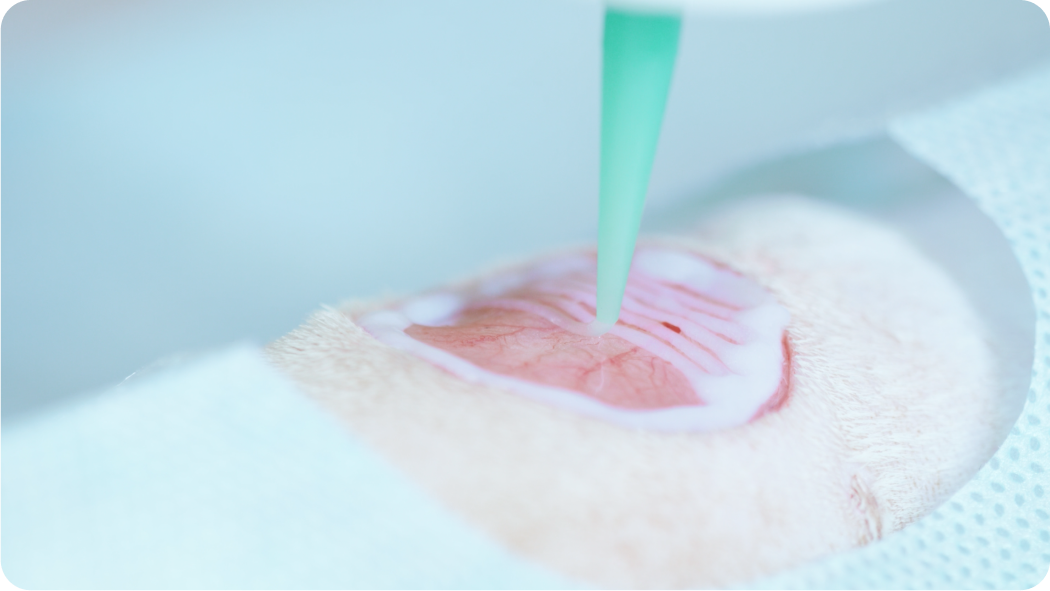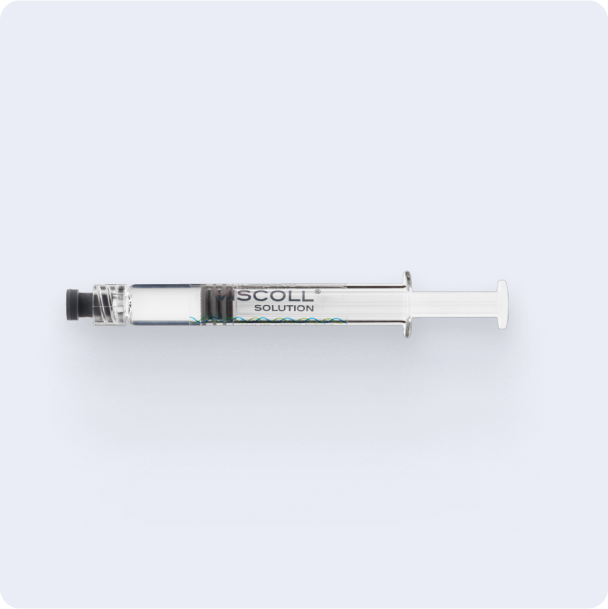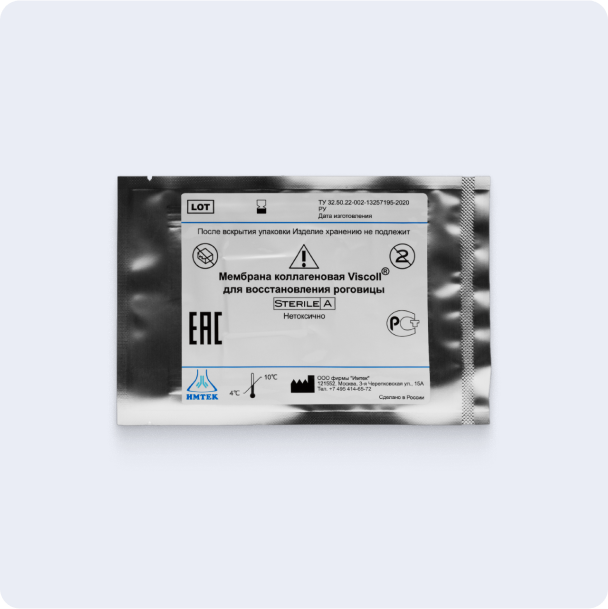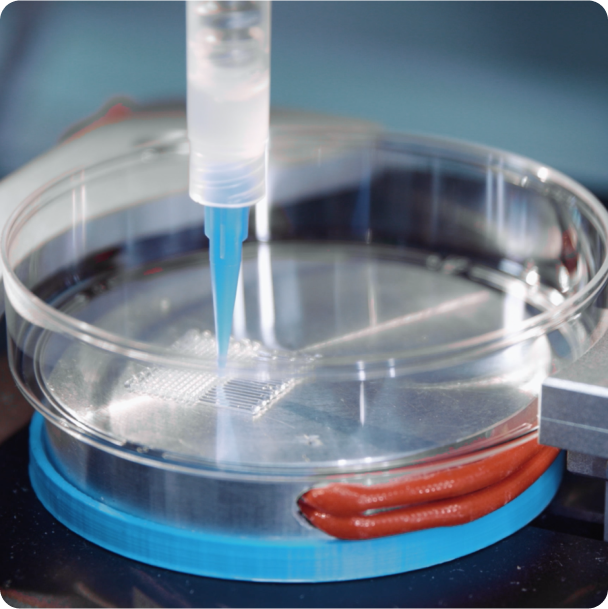Application of Viscoll® Collagen
Viscoll® Collagen can be used in projects aiming to translate research into clinical practice
Some proven areas of application are listed below. Please contact us for additional information.

us
Cell transplantations
Matrix-assisted cell transplantation
Cell transplantation has great potential for treating degenerative diseases. However, obstacles such as poor engraftment and survival after transplantation severely limit the possibilities of this method. Matrix-assisted cell transplantation can solve the problem of cell survival and integration into the surrounding tissues. Viscoll® Collagen is a biodegradable collagen type I that contains cell adhesive sequences and upon in vivo implantation, promotes angiogenesis.
At present, two medical devices made of Viscoll® collagen are undergoing clinical trials that may be used for matrix-assisted cell transplantation:
Viscoll® collagen membrane for corneal repair
Improved biomechanical properties
Medical devices based on VISCOLL®Collagen

-
PurposeThe product is designed to replace soft tissue defects.
-
Scope of application
Cosmetology, dermatology, plastic surgery.
-
Stage of state registration as a medical device
Clinical trials are being conducted.
- Sterile collagen solution at a concentration of 80 mg/ml
- Can be mixed with biologically active substances (growth factors, platelet-rich plasma, osteoinductive materials, etc.)
- Can be mixed with cell suspension
- Time for hydrogel formation at +37°С and a neutral pH range for 3-5 minutes
- Can be used as a bioink for 3D bioprinting
- Ensures prolonged cell survival after transplantation

-
PurposeThe product is intended to replace the surface of the eye through surgical intervention
-
Area of applicationOphthalmology
-
Stage of state registration as a medical deviceClinical trial approval obtained. Site search underway
- Durable, clear, biocompatible collagen membrane
- Can be secured with surgical sutures
- Ensures prolonged cell survival
- Permeable to low molecular weight substances
- Permeable to host cells upon implantation
Additive technologies, particularly 3D bioprinting, are the fastest growing area in tissue engineering. This method makes it possible to create layer-by-layer structures of complex geometry with a given pore size to repair defects in soft and hard tissues. Hydrogels containing collagen are the most popular bioink option. But more importantly, materials made from pure collagen using 3D bioprinting technology have a very high chance of being implemented in clinical practice in the near future. Viscoll®Collagen solutions can be used as universal bioinks for creating three-dimensional structures using direct extrusion 3D bioprinting.

Ease of use
Ready-made solutions for bioprinting

Key Features
- Sterile collagen solution with a concentration of 80 mg/ml
- Can be mixed with other extracellular matrix proteins
- Can be mixed with biologically active substances (growth factors, platelet-rich plasma, osteoinductive materials, etc.)
- Can be mixed with cell suspension
- Ensure long term cell survival
- Can be used as a bioink for bioprinting
Until recently, the extracellular matrix was considered to be just an ordinary, inert scaffold supporting cells. However, over the last two decades, its fundamental role in key aspects of cell biology has been proven. An important event was the discovery of the phenomenon of the regulation of differentiation of mesenchymal stem cells and other types of stem cells according to the specified properties of the surrounding extracellular matrix. We produce highly purified extracellular matrix proteins (collagen types I-V, fibronectin, vitronectin,and laminin), which can be used to create a natural niche for cells for both basic scientific research and applied research in regenerative medicine.


